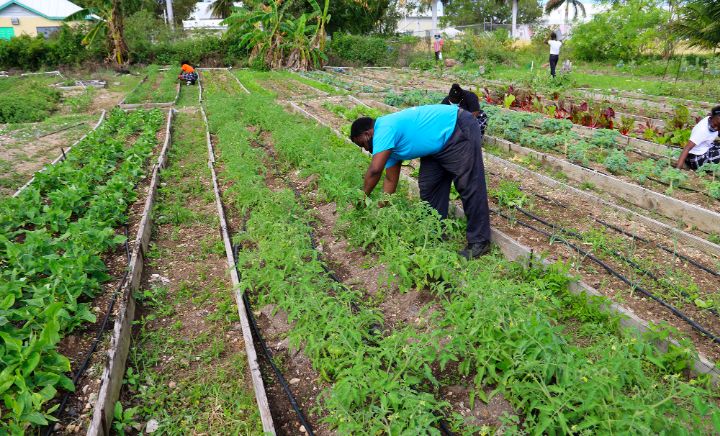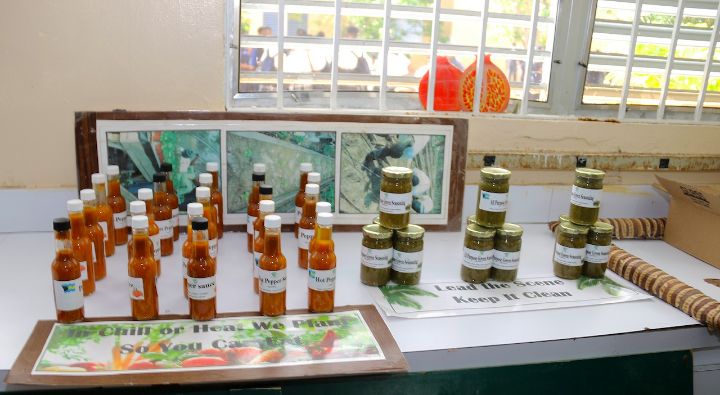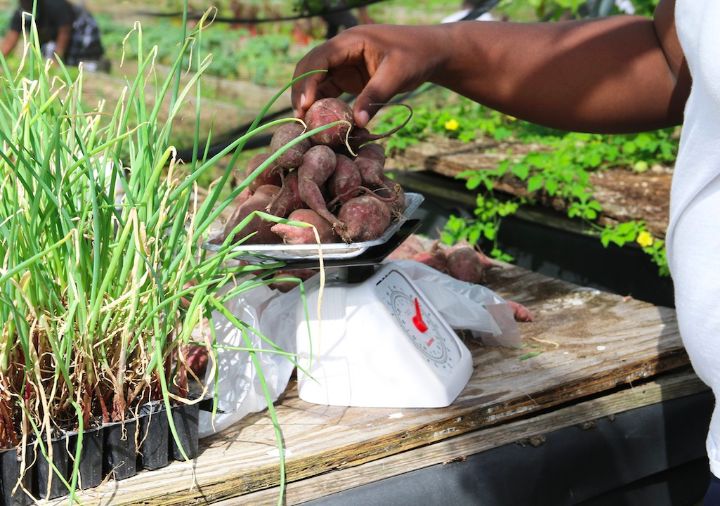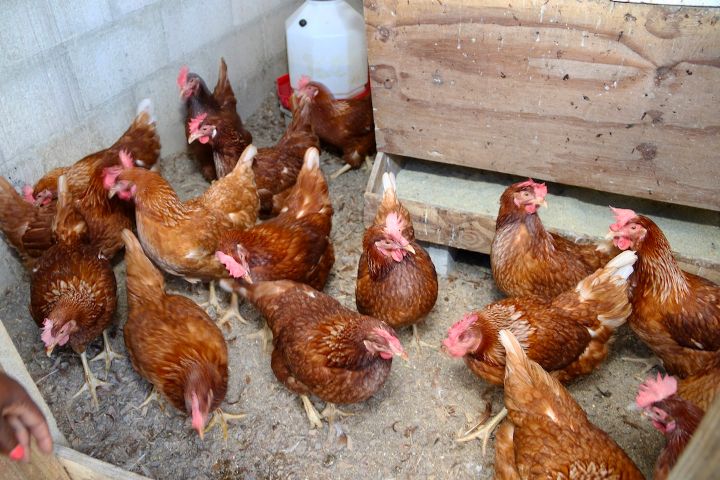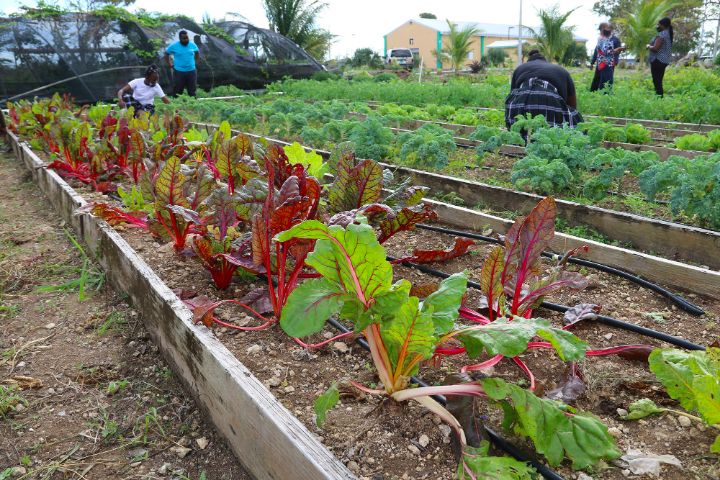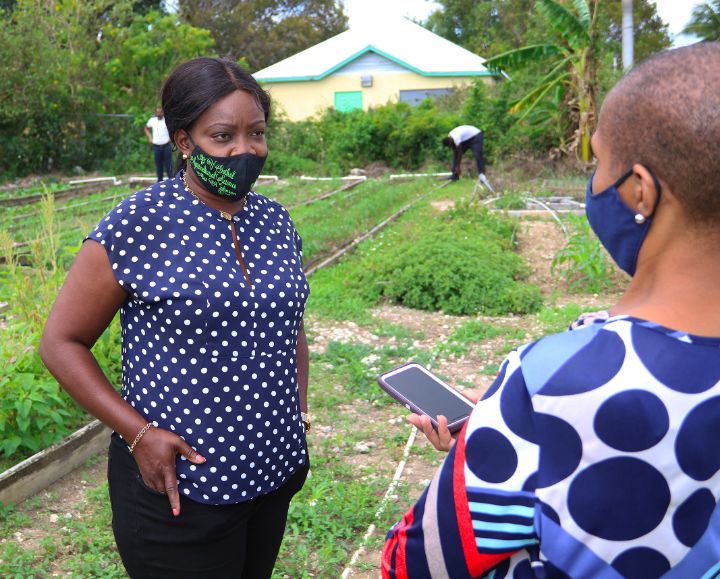|
From:TheBahamasWeekly.com Bahamas Information Services Updates
Nassau, The Bahamas – C.V. Bethel Senior High School is exploring the ‘farm-to-plate’ concept. In addition to managing the school’s on-campus farm, Agricultural Science students are learning how to slaughter, dress, season and cook chickens which they are rearing at the South Beach campus.
Harcourt McCoy, Principal, said the school is attempting to create a direction for students to choose a career in farming and/or to select a crop and engage in backyard farming. “If they decide to [grow] just oranges - 3-4 acres of oranges puts you in a really good financial position to be able to export or even [sell] locally to all the islands. Imagine if every island was known for a particular crop and that’s all they did. We would cut down on our bills.
“Imagine if every household had just one thing that they did not have to buy – peppers, tomatoes, kale, onions, callaloo. If we could get them to grow something in your yards that you don’t have to buy from the food store it helps your budget,” he added.
The program encompasses animal husbandry, food processing, marketing, farm machinery, agricultural budgeting, and crops and soil science. Mrs. Johnson along with Alijandro Gonzalez, her counterpart, encourage the students to transfer the knowledge gained from the classroom to the farm. “This is a practical subject and students need more hands on activities to reinforce the theoretical learning that they receive,” she said.“The Bahamas needs agricultural scientists. This is not just about basic stuff they are doing but we know agriculture has a lot of scope and a wide area for learning. “When we put these students out in the world of work we expect them to use the skills that they would have garnered from this program to be able to sustain themselves, or if they want to go on to higher education they must have a base. If not, they must still be able to survive by doing some kind of backyard farming.”Annually (with the exception of 2020 due to COVID-19) the school recruits 9th grade students for the program from junior high schools. S.C. McPherson is the main feeder school for recruiting, however, students are also handpicked from C.H. Reeves, H.O. Nash, D.W. Davis and L.W. Young.
Some 50 students from grades 10, 11 and 12 presently comprise the program. Mrs. Johnson described them as the “makers and shakers.” “The interest is very high. Some of them have already expressed an interest to continue studies at BAMSI and some have enrolled and attended online sessions with BAMSI. From time to time we allow persons to come in and talk to them so that they can win their souls if they are not fully there.”
Spinach, rosemary, yellow onions, broccoli, callaloo, beans, tomatoes, kale, coconut trees (2-year variety donated by BAMSI) and sweet potatoes donated by Dr. Michele Singh of Caribbean Research and Agricultural Institute, are just a few of the crops on Pick and Pay Farm. Each term new crops are added for variety and a consistent supply.
Virginia McKinney and Denise Reynolds of Green Systems Ltd. donate organic compost and mulch for the garden. “We are grateful to them because they help to make us look good. Crops look different because of the compost that is fully organic,” said Mrs. Johnson. “We are self-sufficient. The department has to raise funds to sustain itself. These produce are grown and we sell them so we can continue to buy needed resources. We have to buy seeds, sometimes seedlings, and feed for livestock. We have to finance the program and that’s where the money goes.”
Livestock program The school’s livestock products are in demand. Mrs. Johnson said the department is harvesting eggs daily thanks to the Government’s National Emergency Food Production (Layer Egg Program). The Ministry of Agriculture and Marine Resources recently embarked on an initiative and is distributing layers to schools and farmers. “We would like to expand to reach the demand for locally grown chickens and eggs. One of the challenges is a shortage on egg cartons,” said Mrs. Johnson. She appealed to customers to bring their cartons to be refilled.Other animals, including pigs, are transported to the Government’s abattoir to be slaughtered and to ensure that they are healthy for consumption.
“We have indeed seen a spike in the demand for fresh, locally grown produce. We are committed to continuing to produce so persons could continue to shop.” Charles Moss, vice-principal, encouraged the students to opt for careers in agriculture. “We need these young people to replace us. We need to see the value in agriculture. That’s been a problem throughout Bahamian history. We don’t like to go down there [the soil]. Mrs. Johnson is showing them the importance of this thing and the pandemic brought all of that out,” he said.Processing
The excess commodity from the farm that is not sold is converted into processed or value added items like the ‘Flaming Hot Pepper Sauce’ or ‘Mild with a Twist of Pineapple’ produced from finger and goat peppers grown on Pick and Pay Farm and the ‘All-Purpose Green Seasoning’ – a rub for meat, vegetables, rice, etc. “If there is a glut in supply we have minimal spoilage because we have the facility and work in collaboration with the Family and Consumer Science [Department] and we also do a little in our classroom.“We are not pressured to significantly reduce the cost of our produce if it’s not being sold. We add value to our products, thus food processing, and this is where agricultural produce is converted to value added products under strict hygienic conditions.
“If it’s not meted out in terms of sterilization, boiling, proper temperature and bottling, you would not have a product that would last a while. There would be foreign bodies in that product that cause spoilage. If we don’t have adequate room here we go to our Food and Consumer Science Department, or we go to the Food Safety and Technology Laboratory where Keith Daley and his staff help us with safe food handling procedures to preserve our excess commodities.”
Student’s experience
“I like the building aspect of it -- like building systems, how they work, that’s fascinating to me,” said young Symonette. “I attended an aquaponics camp in the summer and got the chance to learn about aquaponics, how systems work, how to build one and keep it running. It gave me the opportunity to learn about a whole new field of agriculture,” he said.
|
